
|
Stage 1: Activation |

Executing Objects |
Stage 3: Processing |

|
The second stage is object generation. The specifications made in the object are now generated, and Sync objects or the maximum number of parallel running tasks are checked. Scripts are also processed in this stage.
The structure and start time of the generation stage depend on the setting "Generate at runtime" which is available in every executable object (Attributes tab). Depending on this setting, a script is processed either directly after the task's activation or just before its processing stage starts.
 Jobs: This means that the final JCL is being generated so that it is ready to run on the computer when it comes to the processing stage (it does not run on the computer now).
Jobs: This means that the final JCL is being generated so that it is ready to run on the computer when it comes to the processing stage (it does not run on the computer now).There is no remarkable difference between the above generation types when a task's activation stage is immediately followed by its start stage. But there can be a gap between them. As a matter of fact, the start time of the activated object is usually subject to superordinate objects such as a workflow or group.
Example:
A workflow contains several tasks. Activating this workflow means that its tasks are also activated. Object scripts are now processed provided that the setting "Generate at runtime" has not been activated. The individual workflow tasks start according to their position within the workflow order.
Advantage of object generation in the activation stage:
Advantage of object generation directly before the processing stage:
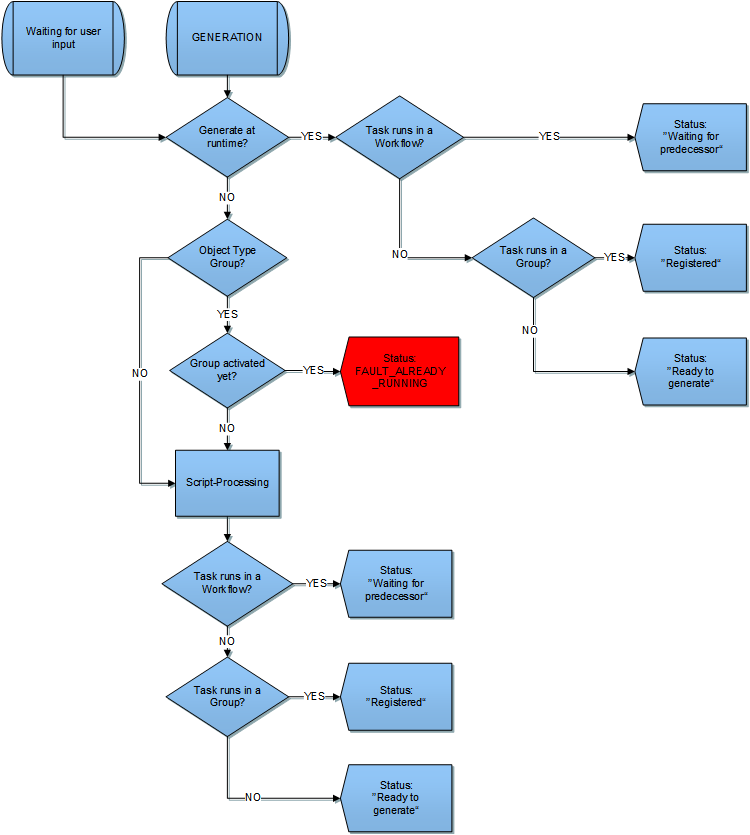
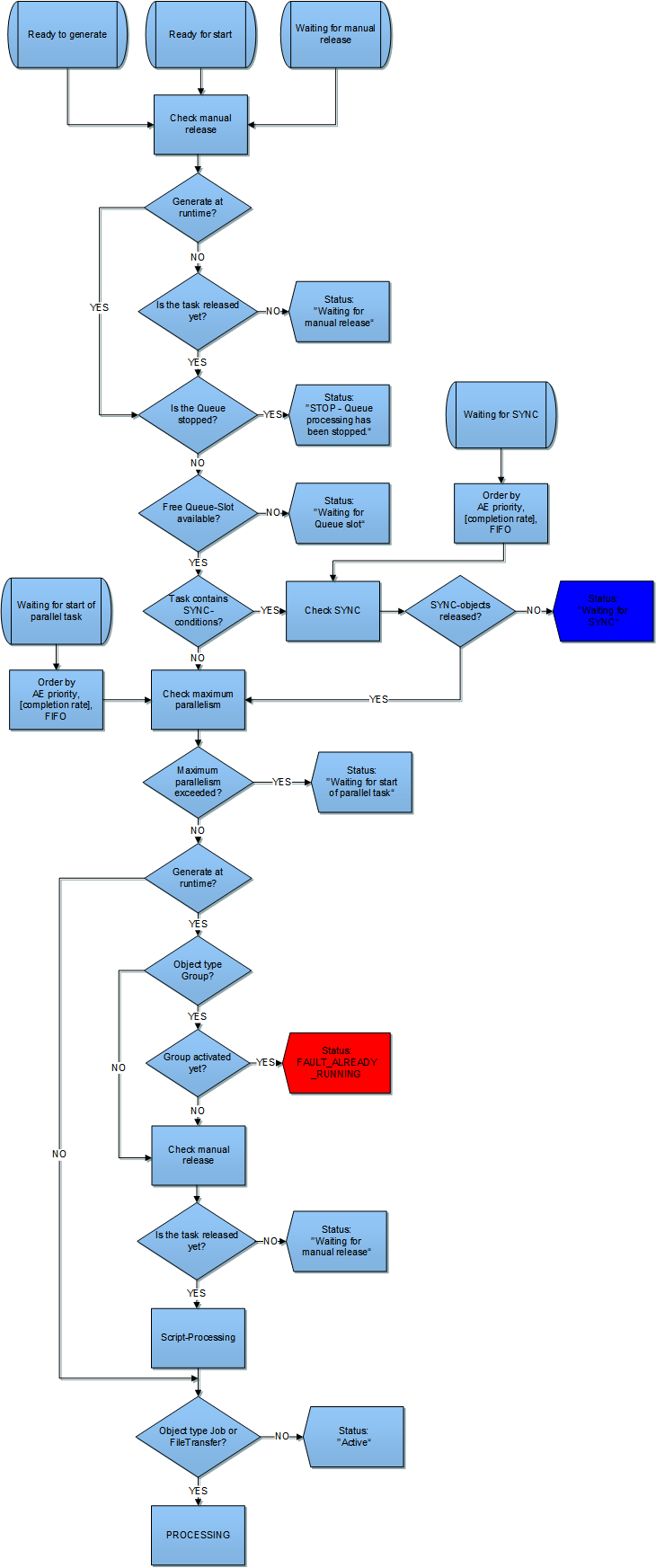
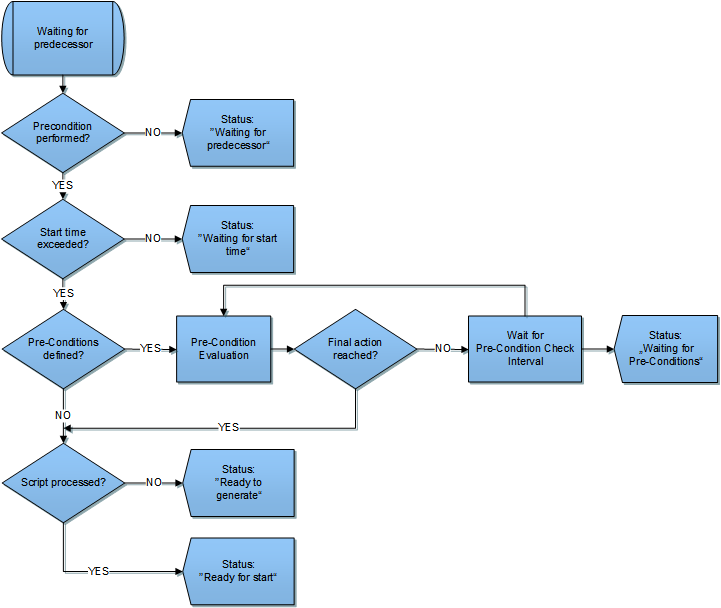
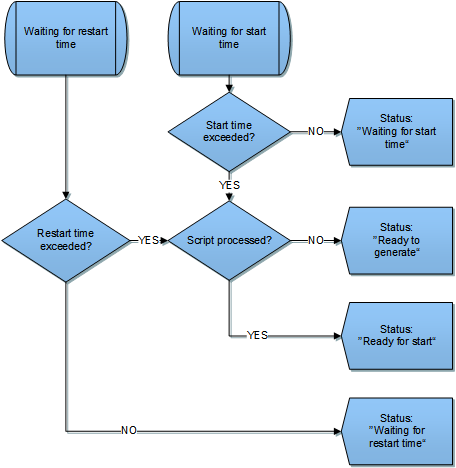
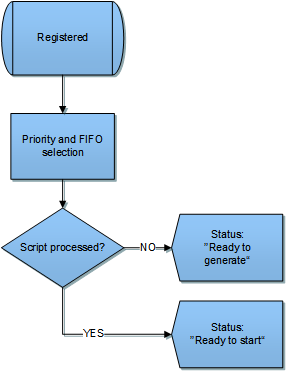
|
Steps |
Description |
|---|---|
|
Script |
The script is processed directly after the activation stage. |
|
|
|
|
Manual release |
In manual executions with options, you can select the option Wait for manual release. Tasks must be released in the Activity Window before their start can be initiated. |
|
|
|
|
Sync verification |
The system checks if the specified Sync objects are available. |
|
|
|
|
Parallel running tasks |
Use the Attributes tab to specify the maximum number of object executions which can run parallel. |
|
|
|
|
Script |
The script is processed just before the processing stage begins. |
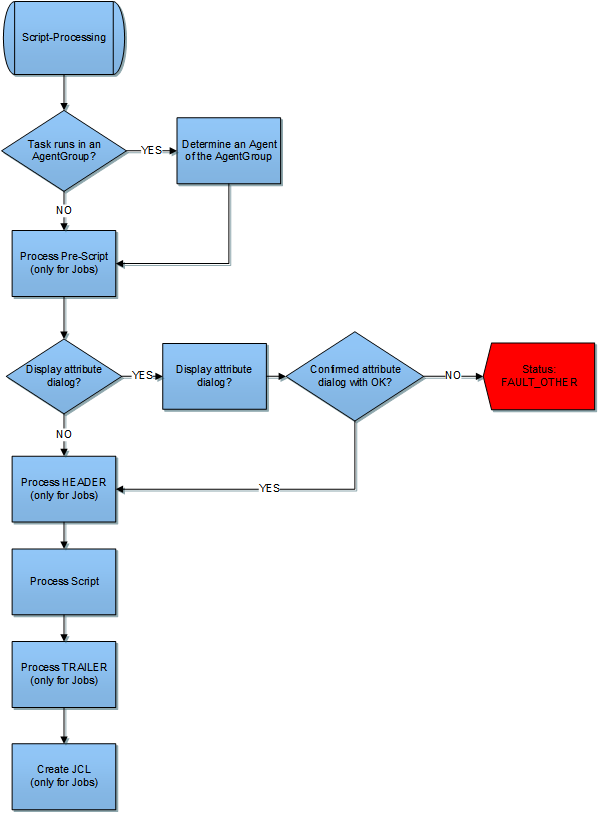
Not every script type is processed in the generation stage. !Process of Event objects and Child Post Processes are executed in the processing state. Post Processes are processed in the completion stage.
|
Steps |
Description |
|---|---|
|
Agent group resolution |
The relevant agent is selected for tasks that are processed in an agent group. Subsequent changes are possible in the Process tab. |
|
|
|
|
Object variables |
The object variables of the task and its superordinate task are provided. |
|
|
|
|
Pre-Process |
Jobs: Pre-Process tab contents are processed. |
|
|
|
|
Attribute dialog |
The Attribute dialog is only displayed if the task is activated manually and NOT generated at runtime. |
|
|
|
|
Header |
Jobs: Header include and related user includes are processed. |
|
|
|
|
Process |
Process tab contents are processed. |
|
|
|
|
Trailer |
Jobs: Trailer include and related user includes are processed. |
|
|
|
|
JCL generation |
Jobs: JCL generation is possible after AE Script processing. JCL modifications are possible before the job starts on the destination computer. |
See also:
Executing Objects
Stage 1: Activation
Stage 3: Processing
Stage 4: Completion